
 May
May


 May
May
Brought to you by – North Fulton Eye Center

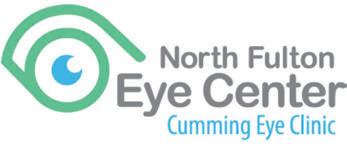
Most people don’t know the difference between an Optometrist and an Ophthalmologist.
Optometrists provide eye examinations, mainly for young healthy eyes, for determining your glasses and/or contact lens prescriptions.
Ophthalmologists are medical doctors and eye surgeons. They provide medical eye exams to determine eye conditions, diseases, and the treatment of such and can also determine your best corrected vision and provide you with a prescription for glasses or contacts.

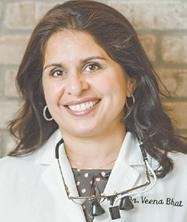
Celebrating 40 years of eyecare in the Roswell and Cumming community. Drs. Paré, Hewitt and Park are general

ophthalmologists/surgeons. All are board certified and trained at Emory University Medical School. Our practice specializes in medical eye exam, laser assisted cataract surgery, LASIK surgery, Corneal/Pterygium surgery, Blepharoplasty surgery (eyelid surgery) and treatment of medical eye conditions and diseases such as Dry Eye, Glaucoma, Macular Degeneration, Diabetic Retinopathy and many other
conditions of the eyes. Our stateof-the-art offices are in Roswell and Cumming. Our practice is built on personalized patient care with short wait times and a personal touch from our staff, opticians and physicians. Both locations also have an optical department for your convenience. You only get 1 set of eyes. Let us help you care for them. northfultoneyecenter.com



Yes, you read that correctly. Those were the only words written in what must have been size 20 million font on a billboard near Greenville, South Carolina. A beautiful United States flag was proudly portrayed on the billboard behind those words. And, oddly, no company name, logo or other identifying information was present to connect this billboard to a specific business or corporation. From what I could see as I drove by, nothing was on the billboard except an American flag and the words “Be Patriotic. Vape.”
This billboard had me puzzled. Was it a joke? Was it actually trying to convince people that vaping is an act of patriotism? Does it assume that the general population and particularly our young people are so impressionable as to believe this billboard and start vaping because they love our country?
I laughed as I drove by, but the billboard did have me worried. The US military included cigarettes in soldiers’ rations from World War II through 1975, and as a result, nicotine addiction and tobacco use has long been a plight of our veterans. Many adult smokers have attempted to use e-cigarettes and vaping as a way of avoiding regular cigarettes. But the fastest growth of vaping has been among young people. Approximately 20% of those aged 18 to 29 report vaping – the highest for any age group.
Since young people seem to be most strongly prone to vaping, it’s important to spread the word on the negative health effects of vaping to our youth. As a dermatologist, I can attest to negative skin effects of vaping, some of which should grab one’s attention:

1. Black, hairy tongue. Multiple oral problems can occur from vaping. The most newsworthy from a teen’s perspective is probably black hairy tongue. The exact reason vaping can
cause this condition is not known, but it’s well-established that some individuals will develop a black, hairyappearing tongue when they vape. Skin cells on the tongue build up, and certain types of bacteria can overgrow. Go to Google Image and type in “black hairy tongue” to scare any teens you know out of vaping.
2. Genital burns. Many e-cigarettes use lithium batteries that were manufactured poorly and are prone to exploding. Between 2015 and 2017, more than 2000 people went to the emergency room for burn injuries from e-cigarettes. Explosions were often spontaneous while the device was simply in the person’s pocket. Pockets are close to one’s private parts, and genitals were commonly burned. Scare your teen with this one!
3. Acne and aging skin. Nothing seems to motivate a social-media era individual like aesthetics. Cigarettes are known to cause acne, premature aging of skin, enlarged pores and oil glands. Nicotine causes many of these changes, and nicotine is present whether one is using traditional cigarettes or e-cigarettes.
Finally, the question of patriotism. In case you were worried that you need to starting vaping to prove that you are a patriot, the answer is that you do not. Patriotism and vaping have NOT been linked. An article in the journal Tobacco Use Insights entitled “The Vaping Teenager” found that teens who identify themselves as “patriotic” are actually less likely to vape than those with other peer crowd identifications. Teens who self-identified as patriotic were more likely to report valuing hard work and enjoying the outdoors. The billboard would have been more accurate had it said “Want to risk burnt genitals, hairy tongue, acne, cardiovascular side effects and a lighter wallet? – Vape.” I guess they ran out of room?
 Brought
Brought
to you
by - By Dr. Benjamin Zussman, neurosurgeon at Wellstar North Fulton Medical CenterThis Stroke Awareness Month, learn the signs and causes of a stroke so you can take action right away if you or someone else experiences one. The Neuro Care team at Wellstar works with patients to reduce their risk of a stroke and provide lifesaving care in the event of a stroke.

The carotid artery is a major blood vessel that brings blood from your heart to your brain. There are normally two carotid arteries, one on the right side and one on the left. At the point where the carotid artery divides into a branch that feeds the face and a branch that feeds the brain, there is a natural location for the buildup of debris, called atherosclerotic plaque.
As plaque buildup increases, it takes up more space within the vessel and begins to narrow the path for blood flow through the vessel. This narrowing is called stenosis. Because plaque buildup is typically disorganized, bits of plaque can tear off or rupture. When a plaque ruptures, it may cause a stroke.
Patients with plaque buildup who develop stroke-like symptoms, or an actual stroke are referred to as having “symptomatic” disease, because the plaque is believed to have caused their symptoms.
In contrast, patients with plaque buildup who have never had symptoms before are referred to as patients with “asymptomatic” disease. Patients with asymptomatic disease may be identified during a physical examination when a “whooshing” sound or bruit is heard over the carotid artery or when an imaging study of their neck is done for another reason. In general, the worse the carotid stenosis, the higher the chance of a stroke.
If you know that you have carotid artery stenosis, then you should watch out for the signs and symptoms of a stroke. One easy way to remember the classic stroke symptoms is to BE FAST:
• Balance — One sign is a sudden loss of balance or coordination. This can also appear as a sudden, severe headache or dizziness.
• Eyes — Blurred vision, double vision or loss of vision can be symptoms of a stroke. If you think someone else may be having a stroke, ask if they are having trouble seeing out of one or both eyes.
• Face — One side of the face may be drooping or feeling numb. Ask the person to smile and see if it appears lopsided or uneven.
• Arms — Look for sudden arm weakness or numbness. Check if the person can lift both arms without one drifting downward.
• Speech — Check for slurred speech or difficulty speaking. Ask the person to repeat a simple sentence to determine if they are having trouble talking.
• Time — The more treatment is delayed, the more the brain is damaged. Don’t wait to seek care. If you notice any of these symptoms, call 911 immediately.
For patients with mild carotid artery disease, there are several effective strategies to reduce the risk of a stroke. High cholesterol contributes to carotid plaque formation, and providers may prescribe medications to lower the body’s cholesterol level. Carotid stenosis narrows the path for blood flow, so other medications are used to keep blood flowing smoothly around the plaque. Finally, quitting cigarette smoking improves the body’s natural repair mechanisms, since smoking limits the body’s ability to heal vessel walls.
For patients with severe carotid disease, there are different procedures to reduce the risk of a stroke. In carotid endarterectomy, the provider will make a two-inch neck incision to expose the carotid artery. First, the artery is temporarily clamped to prevent bleeding. Then, the artery is opened and cleaned to completely remove the plaque. Finally, the artery is sewn, and the incision is closed.



In carotid artery stenting, a small tube or catheter is inserted through the wrist or the leg and steered within the body’s vessels to the carotid artery. First, a protection device is positioned to catch any debris that may become dislodged. Then, a metallic tube called a stent is expanded to push the plaque to the side and widen the artery. Finally, the machinery is removed, and the entry sites are closed.
The neurosurgeons at Wellstar North Fulton Medical Center have extensive training and experience in the treatment of carotid artery disorders. The hospital is recognized as a Certified Advanced Comprehensive Stroke Center — the highest level of stroke certification available — by The Joint Commission. Our dedicated neurocritical care and vascular neurology teams provide worldclass care for patients before and after they undergo a carotid artery procedure.
To make an appointment with a neurosurgeon on the campus of Wellstar North Fulton Medical Center, call (770) 664-9600.
From diagnosis to treatment and survivorship, Wellstar is ensuring the community in this area has access to expert, compassionate cancer care.
The new Wellstar North Fulton Cancer Center brings more than 12,000 additional square feet on the medical center campus dedicated exclusively to groundbreaking cancer treatments right here in the North Fulton area. Services include:
• CyberKnife radiation technology
• Physician expertise in many specialties
• Surgery, medical and radiation oncology
Find care at every step of your cancer journey here in North Fulton.

wellstar.org/northfultoncancercare
Wellstar North Fulton Cancer Center
4500 Hospital BLVD | ROSWELL (770) 410-4530

Brought to You by - Home Helpers of Alpharetta and North
Atlanta Suburbs



May is National Stroke Awareness month, highlighting the symptoms and recovery challenges posed by the most common cause of disability in our country. Someone has a stroke every 40 seconds, with over 800,000 strokes and 140,000 deaths in the USA each year.

Almost 80% of strokes are caused by lifestyle choices we can address. High blood pressure is a leading cause along with smoking (which quadruples your risk), diabetes, lack of exercise, cardiovascular disease, obesity, being 65 or older and having a family history.
The most common stroke type is Ischemic, when a blood clot blocks a vein or artery in the brain. A Hemorrhagic stroke occurs when a blood vessel bursts in the brain. It’s important to know the signs and act quickly, as doctors can give clot busting drugs within 4 hours of the onset of a stroke. Early warning signs include face drooping or numbness in the face, arms or legs on one side of the body, arm weakness and motion difficulty, loss of balance, sudden confusion, speech difficulty or words that don’t make sense, sudden severe headache, blurry vision and trouble seeing from one or both eyes. If you suspect a stroke is happening, call 911 immediately.
After a stroke certain physical issues can occur, including weakness or paralysis, walking, speech and coordination difficulties, fatigue, cognitive and memory problems, trouble swallowing, depression and anxiety. Recovery time differs, and almost 10% of stroke victims recover almost
completely. Another 25% recover with minor impairments and 40% will have moderate to severe impairments that require special care. The first 3 to 6 months are the time to make the most strides in recovery, but performance can continue to show improvement 12 to 18 months out. Recovery is likely to start in a rehabilitation center with a team that includes speech and language pathologists and physical therapists. Researchers have found that after discharge, stroke patients who continued rehabilitation and physical therapy at home had a faster recovery and, after three months, performed activities of daily living at higher levels than those who only received traditional rehabilitation.

At Home Helpers we create a unique care plan that can meet your immediate needs and change as recovery progresses. A heart centered, skilled in-home caregiver can assist with daily consistent exercise - helping to follow your occupational and physical therapist’s techniques that are so vital for recovery. Most stroke patients tire easily and will need help with housekeeping, meal preparation or feeding while regaining use of their hand or arm. Many need help with showers and personal grooming. Your loved one may experience vision difficulties that require them to stop driving, or emotional changes that make them anxious or more easily frustrated.

We’re here to help - from six hours a day, several days a week to 24/7 and live-in care. For a free consultation please call Home Helpers of Alpharetta and North Atlanta (770) 681-0323.



Brought to you by – Dr. Bradley Hepler and Dr. Jeffrey Priluck, The Atlanta Center for Dental
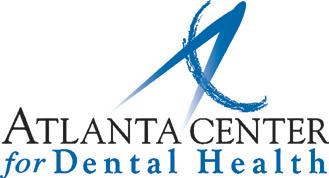
 Health
Health
“Hi, how are you doing today?”
She said, “Do you really think that you can make teeth last for one hundred years?”
It caught me off guard, but I love this question. This is a good question. It came from a long-term patient that I genuinely love and respect. And today she came in with a question that she had already given a great deal of thought. People are living longer. They need their teeth to last longer. Average life expectancy has been increasing for years now.
I had never promised anyone that I could make their teeth last for 100 years. But I must admit that I have thought about it and that it has become one of our goals at The Atlanta Center for Dental Health. I have a curious mind and have done some reading about longevity. There seems to be a growing interest in the topic. Some great minds in science and medicine seem to be making incredible progress. Ray Kurzweil has postulated that in a few years we may reach escape velocity.
His prediction is that scientific and medical advancement will reach a state of adding at least one year to life expectancy every year. Doesn’t that mean that I could live forever?
My answer to the question that afternoon: “Yes, I think that we can make teeth last 100 years. I think that we just need to try harder. People must take really great care of their teeth and prevent problems.”
Dentistry has incredible technology for repairing and restoring teeth. With dental implants and the vast array of great materials, we can do amazing things to fix and improve smiles. But my answer to the question really had to do with preventive dentistry. Preventive dentistry is the practice of taking care of your teeth to keep them healthy. This includes brushing and flossing regularly, avoiding sugary and acidic foods, seeing your dentist for regular check-ups, and getting sealants and fluoride treatments. These measures help to reduce the risk of developing cavities, gum disease, and other dental problems. If we can prevent diseases of your teeth and gums and prevent people from just wearing out our teeth, I really believe that we can make them
last a very long time. The Atlanta Center for Dental Health’s mission is to help people achieve healthy, attractive smiles for a lifetime. Even a century!
“Preventive Dentistry can add 10 years to human life.” -Dr. Charles Mayo of the Mayo Clinic

And maybe more! A healthy mouth is part of a healthy body. Our wish for you is that you look and feel your best in 2023!
Dr. Bradley Hepler, Dr. Jeffrey Priluck and the experienced team at the Atlanta Center for Dental Health provide the most modern advances in cosmetic dentistry. Experience immediate results with procedures to greatly enhance your smile and your health. If you would like a complimentary consultation to discover which of these options is best for you, please call us at 770-992-2236. Dr. Hepler and Dr. Priluck are highly trained and certified to provide you with the latest and best techniques to allow you to achieve your cosmetic and restorative goals.

several
key aspects of health, including the immune system, the musculoskeletal system, and even the brain and heart. Research has shown that it has an anticancer effect as well.
Although we obtain some vitamin D from the sun, as well as from food, I have found that virtually all patients who are not supplementing with vitamin D have a suboptimal level.

I encourage you to ask your doctor to check your vitamin D 25-OH level
the next time you have blood drawn. A level between 60-80 ng/mL in the blood is considered optimal. For most people, a daily dose between 5,00010,000 international units of vitamin D3 is required to achieve this optimal level. It is also recommended to have vitamin K2 (often included within the same capsule) to enhance absorption.

As always, please discuss any potential new supplement with your doctor to make sure it is right for you.


In May of 2020, Dr. Destinee Hood self-diagnosed a brain tumor. What first began as mild, infrequent, and short-lasting disturbances in her vision, developed into episodes occurring more and more frequently.

Destinee got connected with a neurologist who would see her as a new patient (during COVID it was exceptionally hard to be seen by doctors!). After an initial exam, the neurologist told her she had “hormonal migraines”.
After receiving this diagnosis, something just didn’t feel right. She ordered her own MRI scan, and, that night, got the news that she had a brain tumor the size of a lemon.

The following 6 months, she had brain surgery and radiation. Recovery was a slow process, and felt frustrating, despairing, and downright unfair at times. She experienced severe radiation fatigue as well as problems with memory.

One of the biggest hardships was having a 2-year-old who didn’t know why Mommy was tired or couldn’t pick him up.
Destinee is now 3 years out and feels back to normal. She is incredibly thankful to have had the support of her husband Zach, her family, her dental team at Roswell Dental Care, and her mentor Dr. Remaley. She receives a regular 6-month MRI scan to check that she is tumor-free!


Dr. Hood brings her journey and advocacy to her patients at her practice every day. She works hard to advocate for her patients and empower their voice to be heard.
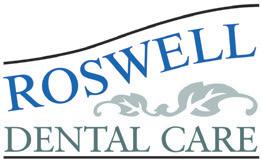
PROVIDED


Brought to you by – The Exercise Coach®
Are you ready to experience a groundbreaking approach to fitness that not only transforms your workouts but also challenges the way you age? The Exercise Coach uniquely blends the focus and support of a coach with stateof-the-art Exerbotics technology, delivering an efficient, full-body workout in just 20 minutes.
At The Exercise Coach, we meticulously craft workouts tailored to your individual needs and goals. Our exclusive strength training machines intelligently adapt to your fitness level, ensuring safe, enjoyable, and highly effective workout sessions. This advanced technology empowers you to achieve maximum
results in minimal time while promoting healthy aging.
The essence of The Exercise Coach experience lies in our exceptional Coaches. Our dedicated trainers provide unwavering support, motivation, and guidance, helping you unlock your full potential and conquer your fitness goals. Together, we’ll challenge the aging process and embrace a healthier, more vibrant lifestyle.
Break free from one-size-fitsall fitness approaches. Choose The Exercise Coach and tap into the transformative power of Exerbotics. We invite you to visit us and experience firsthand our innovative approach to aging and fitness. Take the first step today – your first two sessions are on us! Call or text 770-870-1750 to begin your extraordinary fitness adventure.

 Brought
Brought
to you by
- Cathy Murphy, Director of Community Outreach at Summit Counseling Center
According to a recent report from the Centers for Disease Control and Prevention (CDC), we are continuing to see a trend of declining mental health among our teens. The data showed more than 4 in 10 (42%) students felt persistently sad or hopeless and nearly one-third (29%) experienced poor mental health. The

report also showed more than 1 in 5 (22%) students seriously considered suicide and 1 in 10 (10%) had attempted suicide in 2021.
While statistics worsened for all teens during this period, data shows a stark disparity for teenage girls. In 2021, fifty-seven percent of female students experienced persistent sadness or hopelessness and 13% had attempted suicide in the past year.

You can read the full report on
the CDC’s website at tinyurl.com/ cdcyouth23.



On May 18th, United Way of Greater Atlanta will be presenting new data regarding Child Well-Being both in the Atlanta region generally and in North Fulton specifically.
Your feedback is crucial as we open the discussion to Child WellBeing intersectionality with mental health outcomes. Participants are
invited to share their impressions and implications of these findings. The discussion will inform a comprehensive perspective and provide momentum toward collective action.
Please join us from 10:00 – 11:30 AM in-person on Thursday, May 18th at Alpharetta First United Methodist Church, 69 N. Main Street or via live streaming on Facebook @NFMHC. Register online at tinyurl.com/NFMHC523.
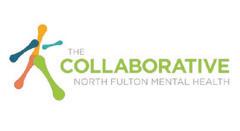

Brought
Milton
Obesity is associated with numerous chronic diseases such as diabetes, hypertension, infertility, depression and heart disease. Fortunately, with the advancement in medical technology there are a range of weight loss options that can help people achieve their desired weight loss goals. One of the latest medications that have gained popularity in recent years is Semaglutide.
Semaglutide is a tiny, simple, easyto-administer injection you give to yourself once per week subcutaneously (under the skin) in your abdomen, upper arm or thigh.
It works to help reduce appetite and increase feelings of fullness, so individuals may start to see the effects of Semaglutide working after the first dose and could start experiencing weight loss within the first two weeks of their program.
But the injectable weight loss medication is not without its downsides. Avoid eating high-fat meals while taking this drug; doing so could cause side effects like nausea and vomiting due to low blood sugar levels
caused by rapid digestion of fat in the stomach area around where food passes into intestine where nutrients absorbed into bloodstream.
Other side effects of Semaglutide include diarrhea, constipation and gas pains in some people taking this medication but these symptoms go away after a few weeks.
Semaglutide is a promising new weight loss drug that can help you lose weight and keep it off. It’s important to remember that this drug isn’t for everyone. At Hydralive Therapy, we take a holistic approach to wellness. We understand Semaglutide can be beneficial across a wide spectrum of people, but we also believe it is
important to use this medication in conjunction with lifestyle changes. If you’re living with obesity or related medical conditions and you think Semaglutide might be a viable choice for shedding excess weight, get started today by contacting Hydralive Therapy Milton at (470) 359-4815. We’re ready to help you succeed!

The Georgia Politics Podcast focuses on all things under the gold dome. Show host Preston Thompson covers the most noteworthy updates to the legislative session of Georgia’s House of Representatives and State Senate.




